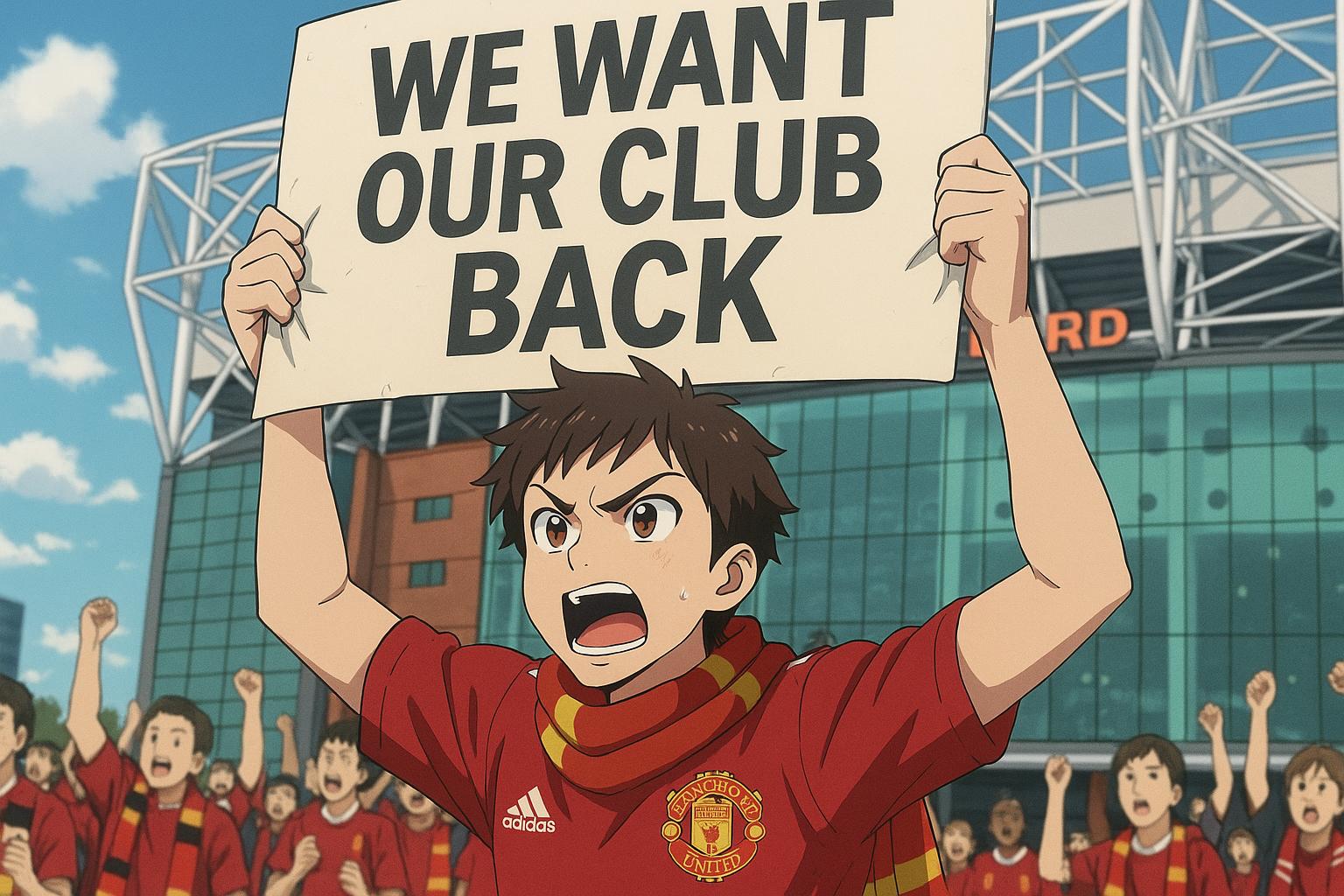As the season drew to a close, Manchester United supporters once again made their voices heard through a fervent protest against the Glazer family's ownership. In a dramatic display outside Old Trafford before the final match of the season against Aston Villa, about 1,000 fans, spearheaded by the 1958 Group, marched down Sir Matt Busby Way. Armed with banners proclaiming messages like "20 years of theft and lies" and "We want our club back," the demonstrators rallied to express their longstanding discontent with the American owners, who have been accused of financially exploiting the club since their leveraged buyout in 2005.
The protest coincided with reports of tension between the fans and Sir Jim Ratcliffe, a figure currently viewed with scepticism as his involvement in the club’s ownership evolves. Recently, Ratcliffe faced disapproval from club staff at a screening of a disappointing Europa League final; the atmosphere soured as he was booed amid layoffs impacting around 200 employees. This undercurrent of dissent highlights a growing unease within the club surrounding management decisions, amid changes that affect both the workforce and the fanbase.
Historically, protests against the Glazers have been a recurring theme, particularly as supporters grapple with the ramifications of rising ticket prices and relocations of long-time season-ticket holders for corporate interests. Earlier in the season, Manchester United announced a minimum ticket price hike to £66 and the relocation of 500 fans from their seats behind the dugouts to allow for a new VIP hospitality area. Such measures have only exacerbated frustrations, with the Manchester United Supporters' Trust publicly expressing disappointment at the club's disregard for their pleas to freeze ticket prices.
The outpouring of dissatisfaction at Old Trafford is echoed by similar protests across the football landscape, reflecting a broader discontent with ownership models that prioritise profit over passion. Just a few months prior, thousands turned out in protest against the Glazers ahead of a critical fixture against Arsenal, asserting demands for a complete change in ownership, notably one that excludes the Glazers. This collective sentiment underscores a growing movement among fans, who increasingly feel alienated from the club's management and direction.
Since their takeover, the Glazers have been painted as responsible for a decade of stagnation and decline, leading to repeated protests that call for drastic changes. The anniversary of their takeover next year marks a poignant moment, with plans for further joint demonstrations alongside fans from FC United of Manchester, aimed at highlighting two decades of discontent. As the club navigates a tumultuous era, fans remain resolute in their desire to reclaim Manchester United’s identity and integrity, signalling that the battle for respect and accountability within the sport continues unabated.
Looking ahead, the challenge for both Manchester United and its supporters is how to align interests in a way that champions the storied history of the club while also addressing modern realities of financial pressures and corporate restructuring. As protests persist, the road to reform seems long, but the spirit of Manchester United fans remains unyielding, symbolising a commitment to reclaiming their cherished club from an ownership model they deem indefensible.
Reference Map:
- Paragraph 1 – [1], [2], [3]
- Paragraph 2 – [1], [4]
- Paragraph 3 – [5], [6]
- Paragraph 4 – [6], [7]
- Paragraph 5 – [2], [3]
Source: Noah Wire Services
